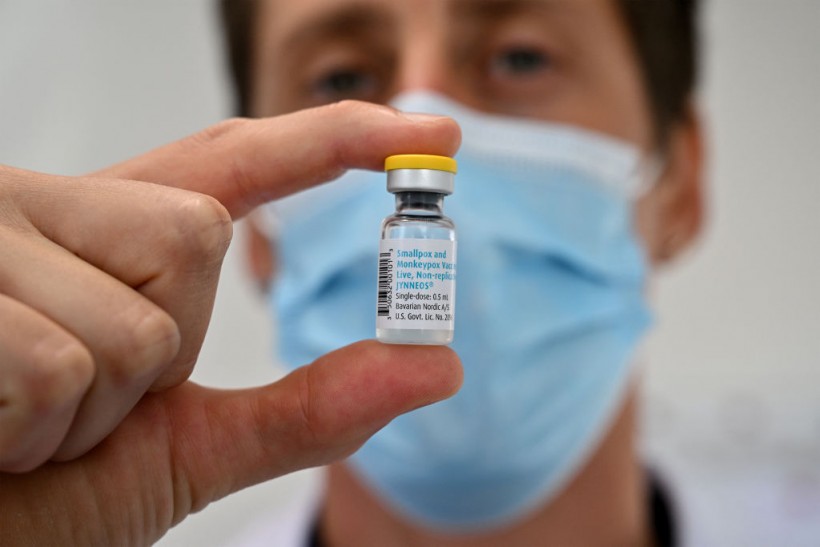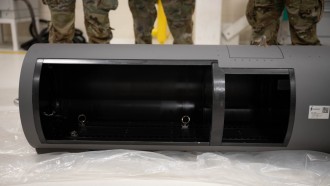A new study suggests that the monkeypox vaccine, which has become the major method doctors are employing to try to end the global plague, may not be as potent as initially thought, as reported by Bloomberg.

A doctor poses with a monkeypox vaccine vial at a Centre gratuit d'information, de dépistage et de diagnostic (CeGIDD) in Montpellier, southern France on August 23, 2022.
Modest Amounts of Antibodies
According to researchers at the Erasmus University Medical Center in Rotterdam, Netherlands, the recommended series of doses with the Jynneos vaccine from Bavarian Nordic A/S produced only modest amounts of monkeypox antibodies with inadequate neutralizing power.
Those who received the vaccine had not previously experienced smallpox infection or vaccination, which is thought to offer some defense against monkeypox.
Due to their capacity to bind to the coronavirus and prevent it from invading healthy cells, neutralizing antibodies has become a popular usage throughout the Covid19 period.
Scientists do not yet know what concentrations of these proteins are necessary to offer protection, even though they are virtually likely required to stop a monkeypox infection and the rash it generates, as per Bloomberg's report.
"The level of optimism for the vaccine far exceeds the data currently available," Helen Petousis-Harris, a vaccinologist at the University of Auckland, said in a statement.
"There are a lot of information gaps and we have to be cautious as it gets rolled out, especially to avoid vaccinated people having a false sense of security," she added.
Researchers from Erasmus University, Marion Koopmans, Rory de Vries, and their collaborators said in a report published on Thursday ahead of peer review that the discovery of lower-than-expected levels of neutralizing antibodies raises concerns about how well immunized people are protected.
Read also: US Orders 800,000 Monkeypox Vaccines! Eligible Individuals | How To Get It, and Other Details
"Negative Effect"
To stop the spread of monkeypox, authorities in more than 70 nations are looking for supplies of the vaccine produced by the Danish company, also known as Imvamune in Canada and Imvanex in Europe.
Monkeypox has infected over 50,000 people ever since the disease broke out in the UK in early May.
The Erasmus work discovered that dose-sparing "had a negative effect" on vaccination, even though some scientists are investigating dose-sparing ways to stretch limited supplies of the inoculation.
They discovered that immunizing people who were already vaccinated against smallpox decades before and receiving a third dose both increase the antibody response.
Smallpox, the first disease to be wiped out in humans, was caused by the variola virus, which is also related to monkeypox. The Bavarian Nordic vaccine, which uses a weakened, non-replicating variant of a similar virus, is thought to be safer than the one that eradicates smallpox.
The Erasmus experts noted a lack of data regarding its usage against monkeypox in people. Animal experiments revealed it produced anti-monkeypox antibodies and T cells, but not enough to stop infection or the appearance of skin lesions.
Related Article: Monkeypox Vs. COVID-19: CEPI Shares One Major Difference of the Two Disease-A Different Global Health Threat?
This article is owned by Tech Times
Written by Joaquin Victor Tacla









